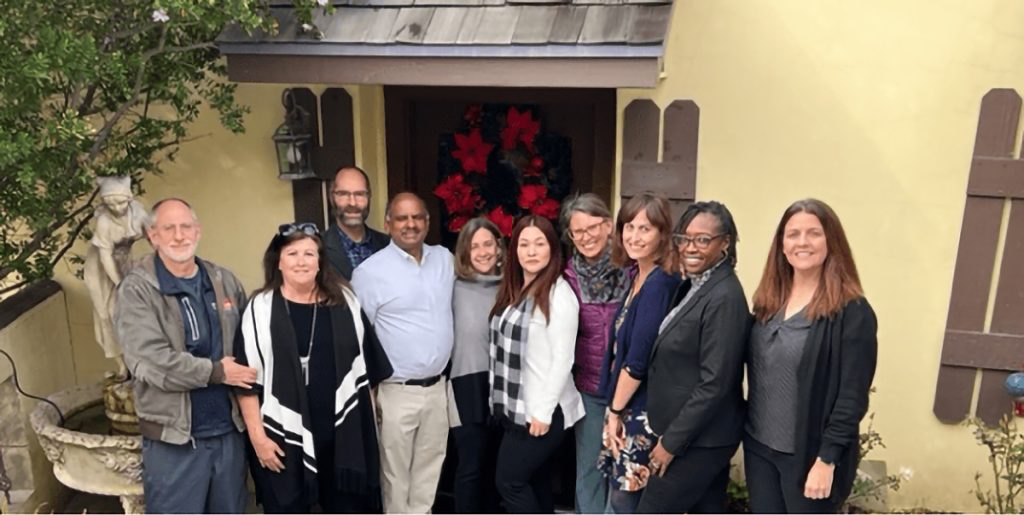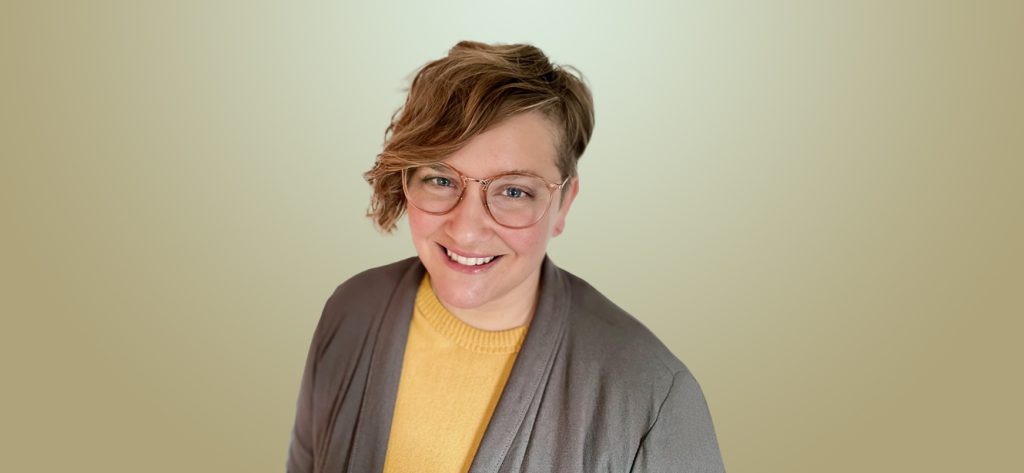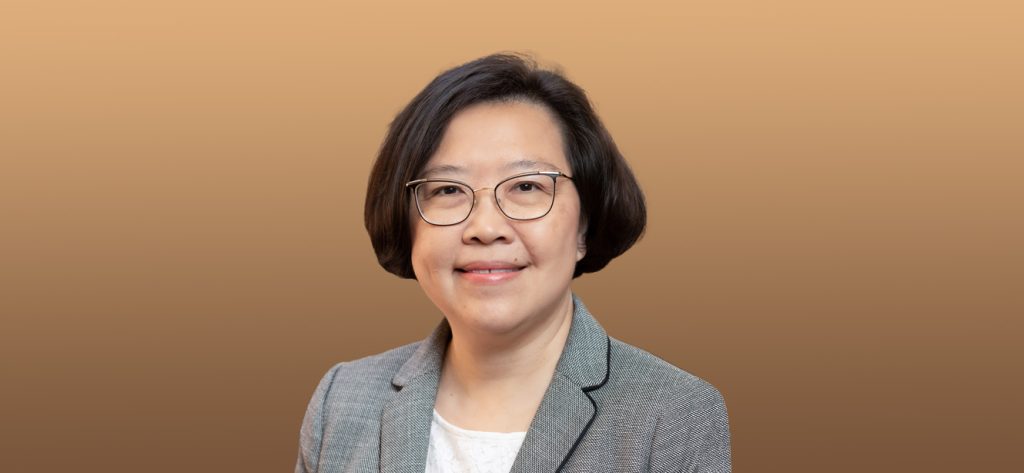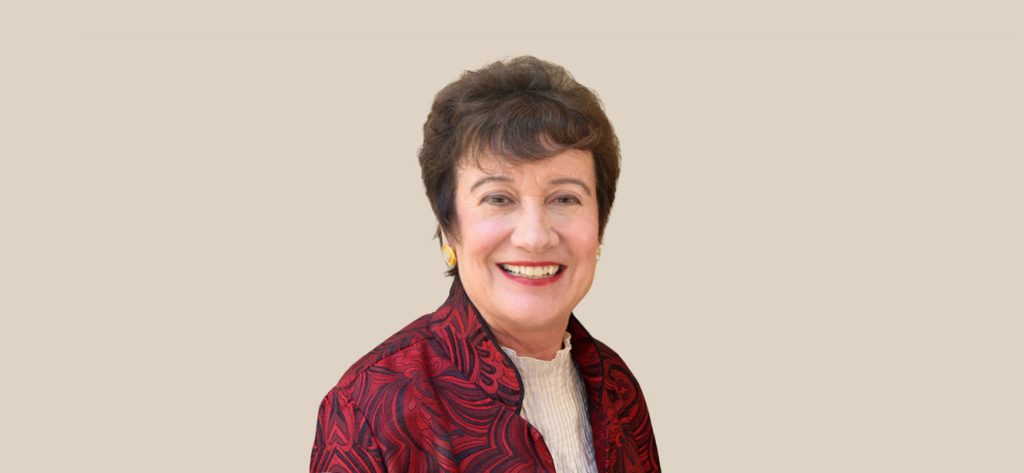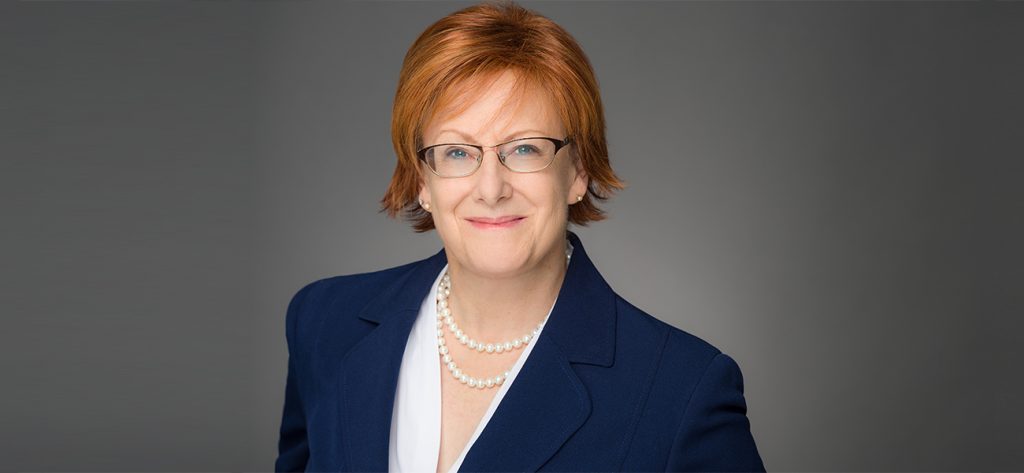Blog
It Takes a Village…
When I think about palliative care, the image that comes to my mind is a group of people whose eyes are firmly fixed on caring for a person in need. In fact, my favorite definition of palliative care aptly describes this image. “Palliative Care is really about helping people to feel that they’re not alone” (author unknown).
Palliative Care, Community, and the Need to Think Differently
Palliative Care education for the community is a key area of focus for the CSU Shiley Haynes Institute for Palliative Care. Patients
Palliative Care Education Changes Everything
I recently had the pleasure of speaking at the monthly meeting of the Riverside County Medical Association about the state of palliative care education and the need for more crucial conversations about palliative care in both healthcare settings and in the community. A fundamental concern is how to address the growing numbers of people living with serious illness and how to support them and their families.
Hold On Tight to a Heart of Stone
The year was 1987. It was December and most people were busy hurrying from shopping to holiday parties to religious observances, preparing with great anticipation for the celebrations to come. Thoughts of what to make for the holiday dinner or how to get all of the gifts wrapped in time consumed most of their days.
Jerry’s Place: A Social Model Hospice
California State University, Monterey Bay, located near the state’s central coast, is a long-term campus partner of the CSU Shiley Haynes Institute for Palliative Care. I have served as the faculty director and am involved with various palliative care initiatives on our campus and surrounding community. One such initiative I would like to highlight is Jerry’s Place, a program through the Jerry Rubin Foundation for Cancer Care.
Can You See Me?
As individuals and organizations committed to palliative care education and services, we know that there is a great deal of misunderstanding about palliative care among the public. People often confuse palliative care with hospice and many believe that palliative care is only for those who are terminally ill.
Palliative Care and Personal Connection: Call Me by My Name
I share this story to remind us that it is not so much what we say but the way we make people feel that determines the quality of the experience that patients and families carry with them on their illness journeys. Palliative Care professionals are in the perfect position to create positive feelings, even in difficult conversations.
Communicating to the Public About Hospice and Palliative Care
Misconceptions abound about serious illness care and it is especially difficult to sort out distinctions between hospice versus palliative care. The depth of public misunderstanding about these services may be greater than most professionals realize.
2023 Symposium Highlights Communication, Caregivers, and Changing Healthcare Education
My mom asked me why they don’t coordinate better and share information to make it easier on older people? I told her that this a goal for palliative care – to provide the best care possible, spare patients and caregivers unnecessary stress, and improve quality of life. This conversation was timely as it occurred just prior to the National Symposium for Academic Palliative Care Education and Research which was held March 2-3, 2023, in Long Beach, CA.
When she was studying to become a nurse, Katie Robinson, PhD, RN-BC, CHPN, didn’t know what kind of nursing she wanted to practice. “I went through all the iterations, starting with labor and delivery and pediatrics,” said Dr. Robinson, now assistant professor of nursing at California State University San Marcos, and one of the co-presenters for a pre-conference workshop at the Institute’s 2023 National Symposium for Academic Palliative Care Education and Research, March 1 at the Long Beach, Calif., Hilton Hotel.
Dr. Robinson-Lane Will Speak to Community Building
As America’s health care system confronts its history of inequity and bias at all levels, the Shiley Haynes Institute’s upcoming Annual Symposium will offer attendees an opportunity to explore these issues for hospice and palliative care professionals in the context of community and community building.
Dr. Erikson’s Pre-Conference Workshop for 2023 Symposium will Explore AACN’s Core Spheres
One of the pre-conference workshops at the Shiley Haynes Institute’s upcoming 2023 national symposium will highlight an enhanced role for palliative care, as signaled in the American Association of Colleges of Nursing (AACN)’s latest updating of its “Core Competencies for Professional Nursing Education.” Released in April of 2021, it identifies four “core” spheres of care that may still be unfamiliar to some nursing educators.
Personal caregiving, which covers a broad spectrum from childcare to providing for the health care needs of a parent, spouse, sibling or other loved one, can have huge implications and huge consequences for the caregiver.
Interprofessional Education and Practice to be Highlighted in Plenary at Institute’s 2023 Symposium
The advancement of interprofessional education and practice are rapidly evolving trends across the health care system but particularly relevant for the field of palliative care. “I would say that palliative care itself is inherently interprofessional. You can’t practice palliative care without working closely across different professions,” said Veronica Young, PharmD, MPH, FNAP, founding director of The University of Texas at Austin Center for Health Interprofessional Practice and Education.
Burnout’s Institutional Challenge: Dr. Maslach to Address Institute’s 2023 Symposium
For UC Berkeley psychology professor emerita Christina Maslach, PhD, creator of the widely used Maslach Burnout Inventory (MBI) psychological research tool, much of the current focus on the burnout epidemic in the health professions tends to point the finger at the individuals and what they need to do in order to become more resilient in their jobs. Instead, she says, we should look at the systems and job settings—the occupational phenomena that are creating widespread, chronic job stress.
A Great Start: Interim Executive Director Named for the CSU Shiley Haynes Institute for Palliative Care
As the year draws to a close most of us spend time reflecting on where we have been in the last 12 months and where we are going. This is certainly true for me this year, as I’ve returned to the Institute in a new capacity to continue the great work of our most recent Executive Director, Jennifer Ballentine. In November 2022, I was delighted to assume the role of the Interim Executive Director of the CSU Shiley Haynes Institute for Palliative Care.
Institute Executive Director to Retire
Last month, I wrote about the exciting direction that the CSU Shiley Haynes Institute for Palliative Care will be taking over the next year. I want to share with you now news of a new direction I will be taking as well – as of the end of this month, I will retire from the Institute.
Marking the 10th Anniversary of the CSU Shiley Haynes Institute for Palliative Care – and Sharing What’s Next!
We have so much to celebrate! This month, the CSU Shiley Haynes Institute for Palliative Care turns 10! On September 20, 2012, the Institute was launched at California State University San Marcos (CSUSM) as America’s first statewide educational and workforce development initiative dedicated to palliative care!

